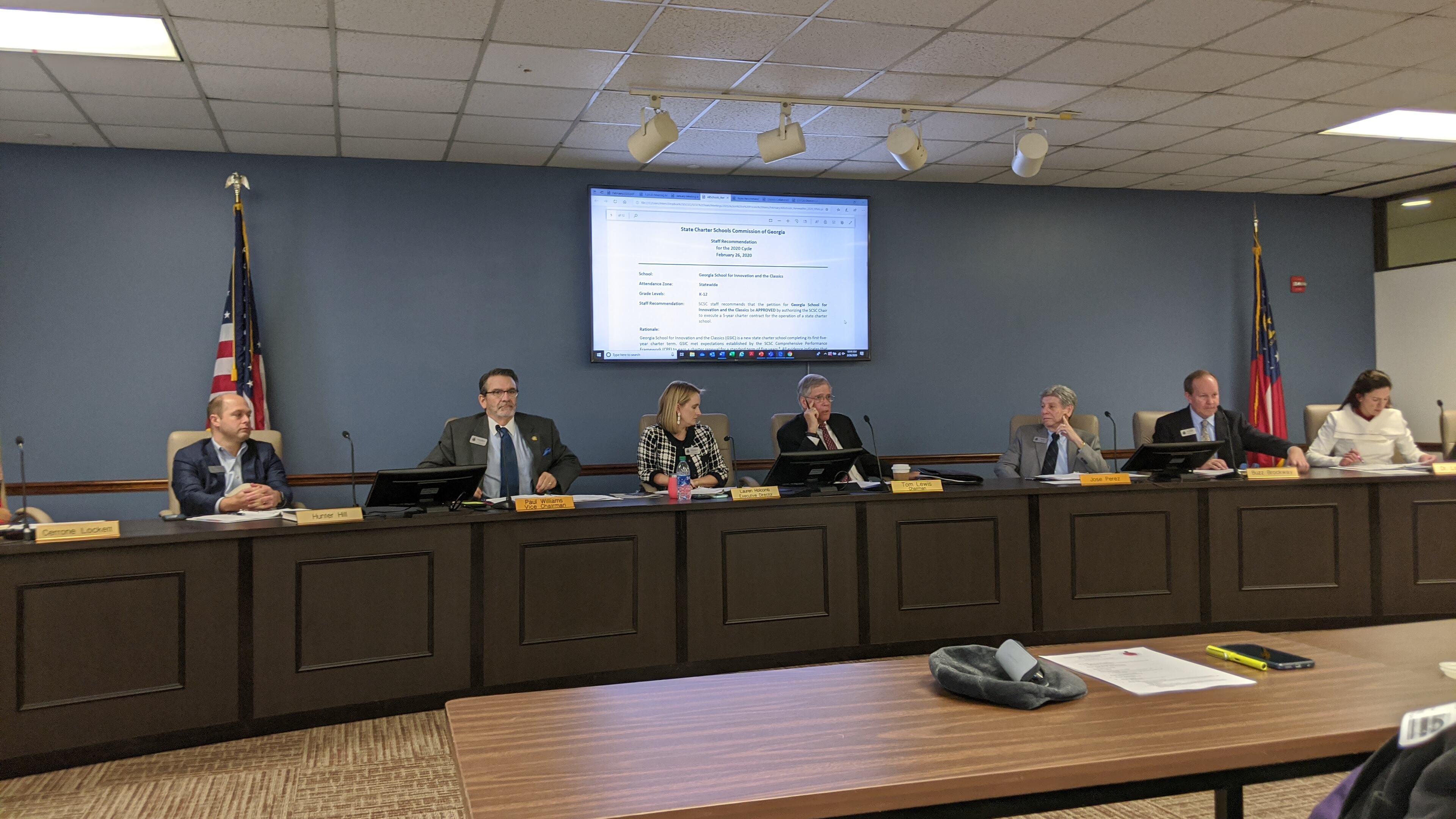State charter schools get permission to remain open

Georgia has renewed the charters for nine schools whose authority to operate was to expire this year.
The reauthorized schools, which collectively serve about 15,000 students, don’t fit the typical charter school mold because they operate under the state rather than under a local school district. Had they been made to close, the students would have had to find another school, likely the neighborhood public school they left.
The attendance boundaries for these charter schools often extend beyond a single district, as with Georgia Cyber Academy, the largest public school in the state with more than 9,000 enrolled last fall.
That Atlanta-based online school is enduring a fractious split from K12, Inc., the corporation that once provided most of the school's services and curriculum. Because the academic performance is improving but not where officials want it to be, the State Charter Schools Commission approved a three-year renewal rather than the typical five years.
»RELATED: Georgia's largest public school struggles to survive
»ALSO: Parents learn an online school can be hard to reach in a crisis
Four other schools also got clipped terms.
Foothills Education Charter High School, with locations across north-middle Georgia; International Academy of Smyrna, an elementary and middle school in Cobb County; and Utopian Academy for the Arts, a middle school (soon adding elementary students) in Clayton County, were given three years.
Scintilla Charter Academy, an elementary and middle school in Valdosta, was renewed for two.
Four schools earned full five-year terms: DuBois Integrity Academy, an elementary school in Clayton County; Georgia School for Innovation and the Classics near Augusta, serving elementary, middle and high school students; International Charter School of Atlanta, an elementary and middle school; and Odyssey Charter School, an elementary and middle school in Coweta County.
A couple schools with shorter renewal periods, including Utopian, asked for more time. Utopian suffered financial setbacks due to conflict with local officials who delayed the opening several years ago. A five-year term would send a better message to potential donors, said Artesius Miller, founder and director of Utopian.
Commissioners rejected the requests, saying the schools came close enough to the standards for academics, finances and operations but needed to improve before winning full terms.
The decision to approve shorter terms, said commission Chairman Tom Lewis, shows the state’s determination “to work with those schools and try to correct some things.”



